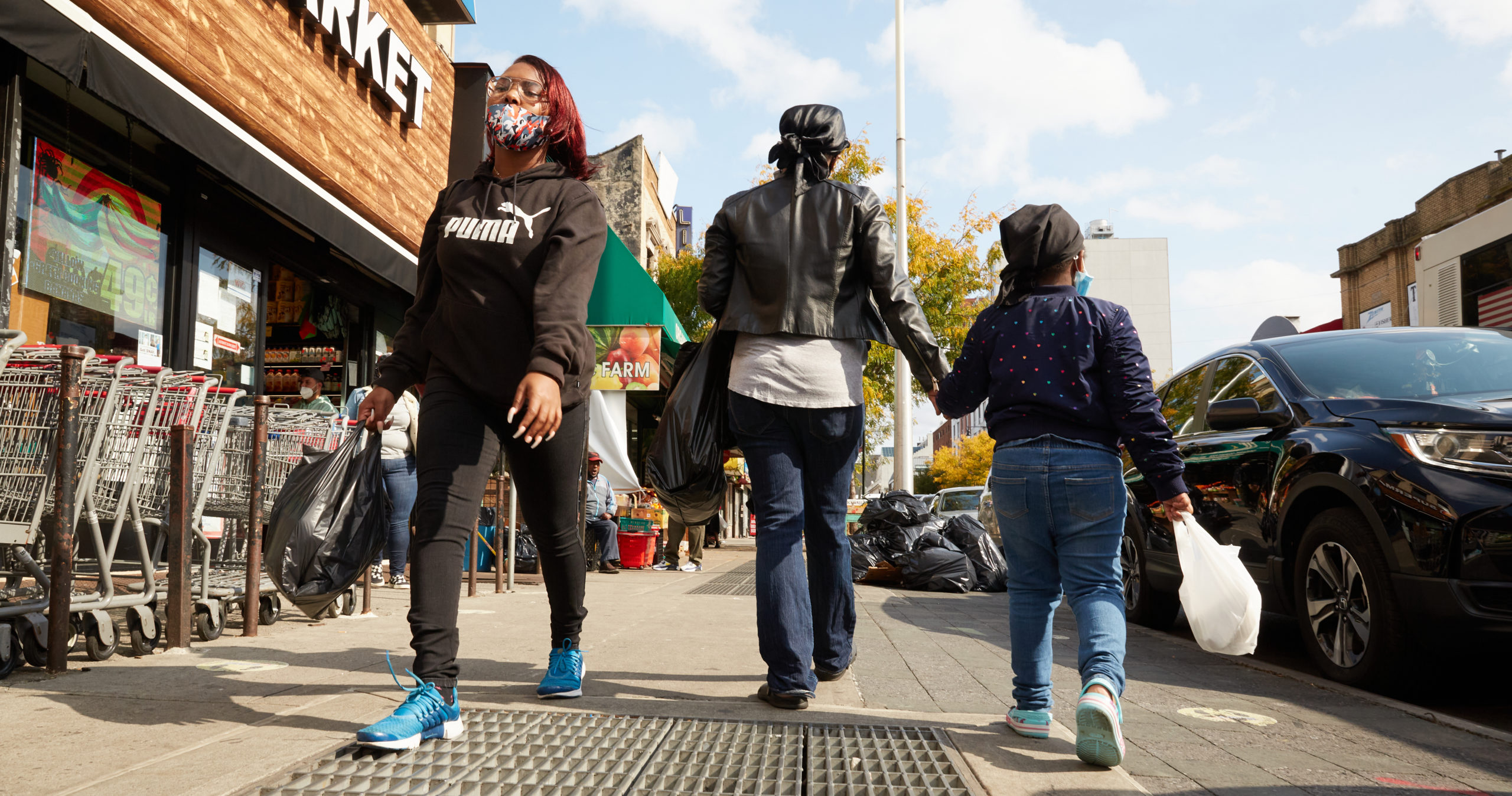By late spring, Edwin Quezada had finally phased out plastic bags at the Shop Fair supermarket he manages in Bedford-Stuyvesant, Brooklyn. The state’s ban on them became law on March 1, but in the months that followed, enforcement was delayed by a lawsuit.
Lincoln Market, Shop Fair’s competitor which opened in mid-August, was offering plastic bags just a half block away, and Quezada felt pressure from customers to bring them back.
“We really didn’t want to lose customers just because of a plastic bag,” said Quezada, who started offering them again shortly after Lincoln Market’s opening.

The law was controversial from the start. In late February, just days before it was to go into effect, the New York State Department of Environmental Conservation announced it would delay enforcement because of a lawsuit by bag manufacturers. The ban wasn’t enforced even after the state Supreme Court upheld the law Aug. 20. Then last month, the state said stores would have to comply by today.
Store owners will receive a warning notice for their first violation. After receiving a warning, stores that continue offer plastic bags can be fined $250, and each subsequent offense can cost $500.
The state is “conducting ongoing extensive outreach to stakeholders, including grocery stores, retailers, and others, to provide notice of the start of enforcement and answer questions,” the environmental department said in a news release dated Sept 18. A spokesperson declined to elaborate.
Some business owners said the first they heard of the upcoming enforcement date wasn’t from the state at all.
“I learned on 1010 WINS,” said Aaron Shamay, the owner of Fulton Home Center and Hardware, in the Bedford-Stuyvesant section of Brooklyn.
Store managers and owners said they were concerned whether they will manage to finish off their supply of bags before enforcement goes into effect.
“I have 50 cases left,” Rafael Cepin, manager of Bravo Supermarket in Brooklyn, said last week. Cepin said his sales representative may agree to take them back for a refund.
Many stores have already begun offering customers paper and cloth alternatives for a small fee.
“If people don’t want to pay for a bag, they’re going to have to carry it in their hands,” said Cepin. “At the beginning, that will happen.”
John Catsimatidis, who owns Gristedes, one of Manhattan’s largest grocery chains, opposes the ban. He said in an interview that his employees and customers have been complaining. “They suspended it many times before. I want to suspend it again,” Catsimatidis said.
Others are eager for the ban to go into effect.
“Seeing so many bags wash up on the shores, you’ve got to be kidding me,” said Mike Ryan, a Brooklyn resident. “How long is this planet going to last?”
State environmental officials say that New Yorkers use about 23 billion plastic bags a year, and most of those bags wind up in landfills or polluting waterways and streets.
Consumers have added plastic bags to mixed recycling for years, clogging sorting equipment at recycling centers.
“Flexible bags and wrappers should never be placed in the recycling bin,” said Jeremy Walters of Republic Services, a private recycling company. “It’s a tremendous problem.”
Some retailers provide drop-off bins where plastic bags can be recycled.
Janet Larsen, former director of research at the Earth Policy Institute at Rutgers University, says there is a silver lining to the ban coinciding with the coronavirus pandemic.
“The scientific studies showing that COVID persists longer on plastic than on other surfaces … should be additional ammunition to forgo plastics dependency,” she said in an email.
A study in the New England Journal of Medicine last spring found that the virus lasts longer on plastic than other surfaces. However, the Centers for Disease Control and Prevention recently stated that aerosols are the most common form of transmission.
Americans’ dependence on plastic bags has grown exponentially since they appeared in the late 1970s, though Larsen has written that many American customers were initially “disgusted by the checkout clerks having to lick their fingers when pulling the bags from the rack.” People also got angry when they split open.
“But retailers continued to push for plastic because it was cheaper and took up less space than paper,” Larsen wrote in a blog post for the Earth Policy Institute. “Now a generation of people can hardly conceive of shopping without being offered a plastic bag at the checkout counter.”
According to a United Nations report, 127 of 192 countries have curbed the use of plastic bags. The U.S. isn’t among them, and some states have adopted preemptive legislation preventing plastic-bag bans.
Many store managers and owners say they are ready to comply, and they see it as a step in the right direction.
“It’s good. Plastic bags are an expense to us, and it doesn’t help the environment,” said Quezada. “The plastic bags keep accumulating. You just can’t get rid of them.”



